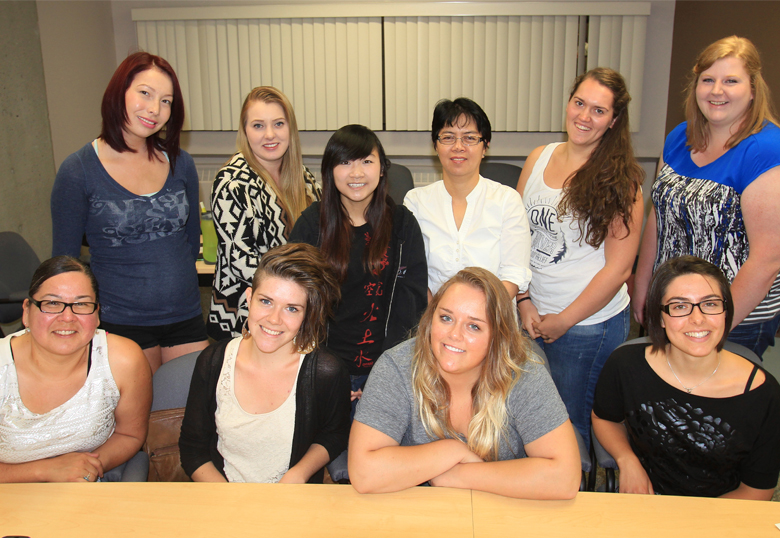A few days before their scheduled departure to Tacloban City, Philippines, the 14 students in Dr. Glenda Bonifacio’s field course are bubbling with anticipation.
They are excited to meet the people, experience the culture, eat the food and soak up as many experiences as they can while they are there. While reading about the country can give them a foundation, they can’t wait to see it for themselves.

The field course is a first for the University of Lethbridge Women and Gender Studies department and is designed to develop global citizenship from a gender perspective. As far as Bonifacio knows, this will be the first field course to visit the University of the Philippines’ campus in Tacloban. While there, the group will be staying in student dormitories.
“The students will be there experiencing the life of an ordinary student. There is no hot or cold shower, there’s no air-conditioning. So they will be there as student scholars, not as tourists,” says Bonifacio. “I told them they are the pioneers who are doing it for the first time so the pioneers work very hard to pave the way for the next group.”
Bonifacio has imparted some history about her homeland and prepared the students for the conditions they will encounter. Typhoon Haiyan/Yolanda hit Tacloban City hard when it made landfall in November 2013. Thousands of people were killed and homes and infrastructure were destroyed. Rebuilding is ongoing.
The students are trying to prepare themselves as much as possible for what they will encounter. However, the reality on the ground will still be a surprise, says one student who expects to be inspired at how people have persevered and worked together to help each other.
Students will be immersed in local life during their stay. They will visit non-government organizations working in the area, evacuation centres and women’s co-operatives, attend community festivals, meet with representatives of different government agencies and attend lectures by Filipino scholars, practitioners and local officials.
Because of the diversity of their majors, including sociology, psychology, fine arts, women and gender studies, neuroscience, education, math, community health, management, environmental science and Native American Studies, the students will bring a variety of perspectives to their experiences.
They will be able to see the effects of globalization, of colonization, of gender roles, and how the music and art communities are helping people rebuild after the typhoon.
The students, who received the Campus Alberta Grant for International Learning (CAGFIL) for this trip, depart June 20 and return July 20.
